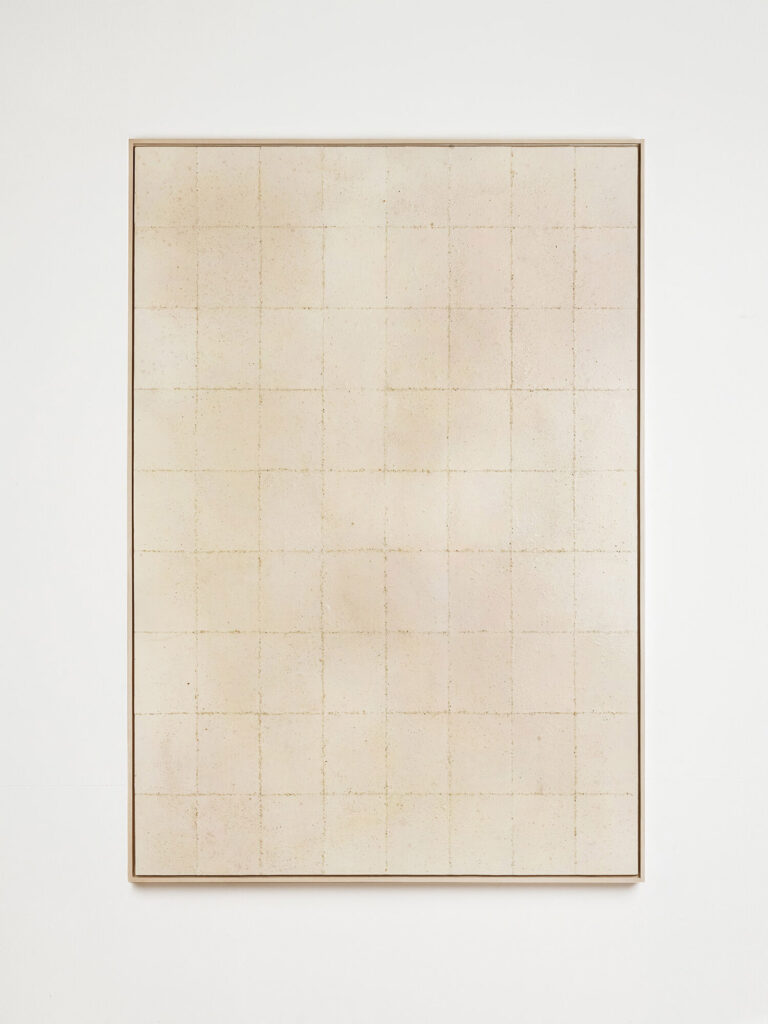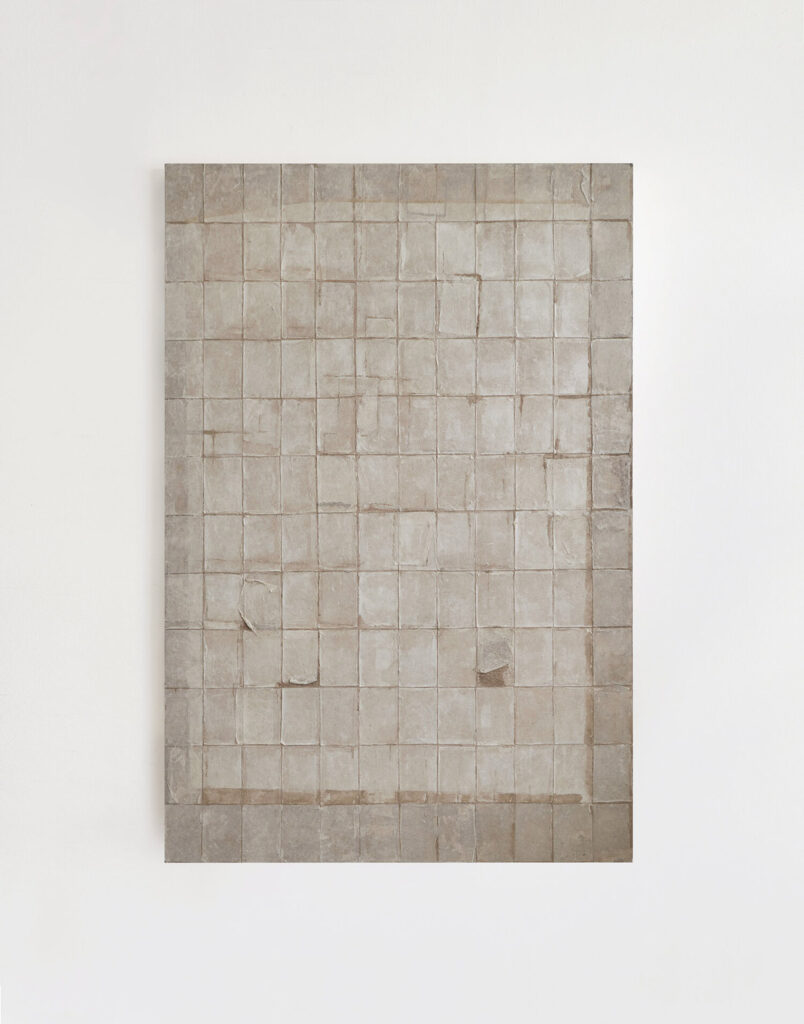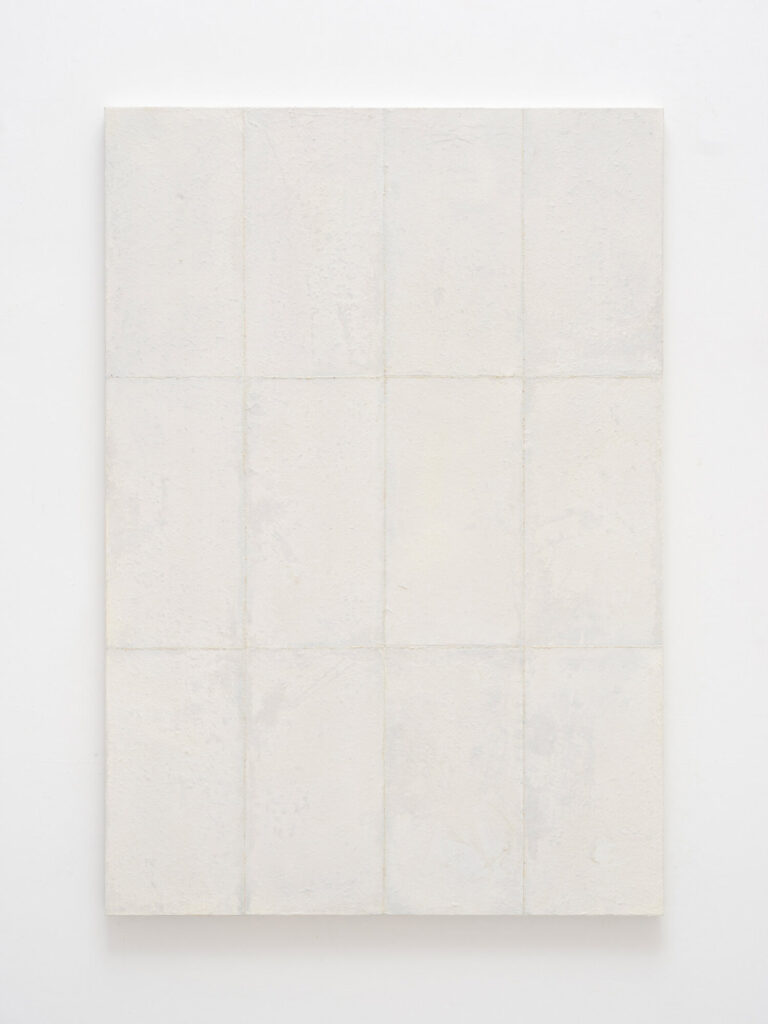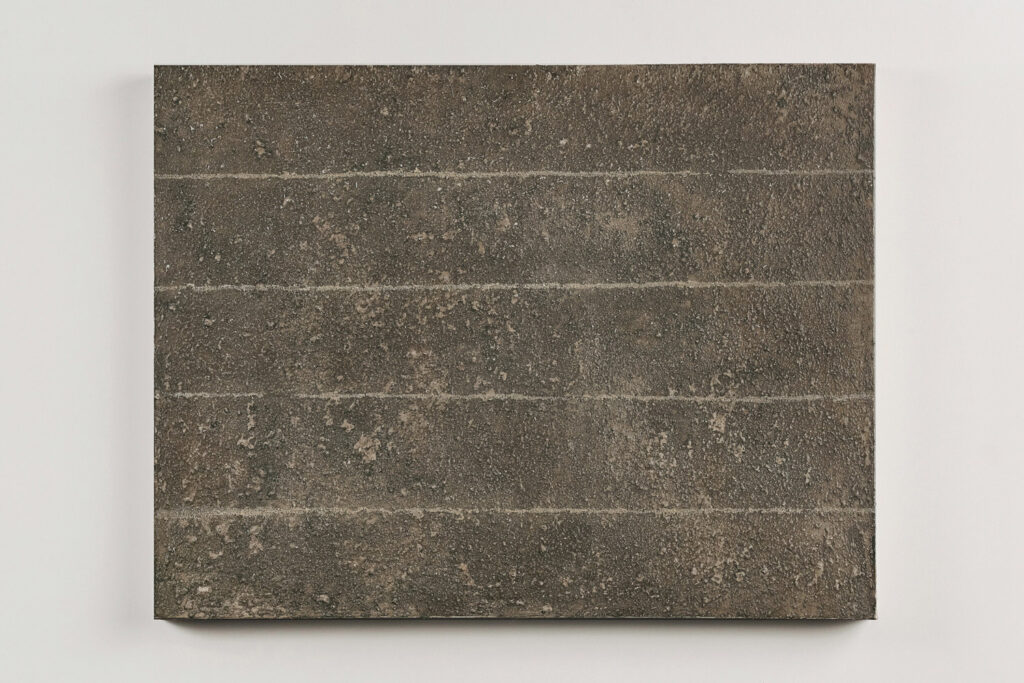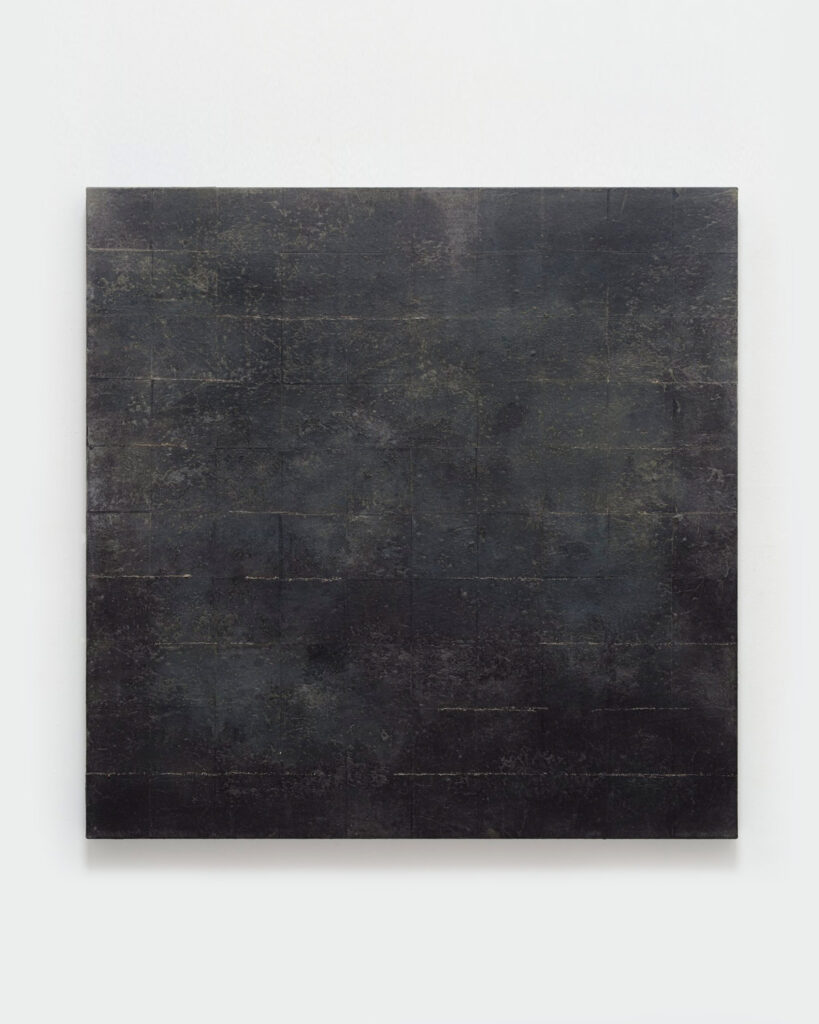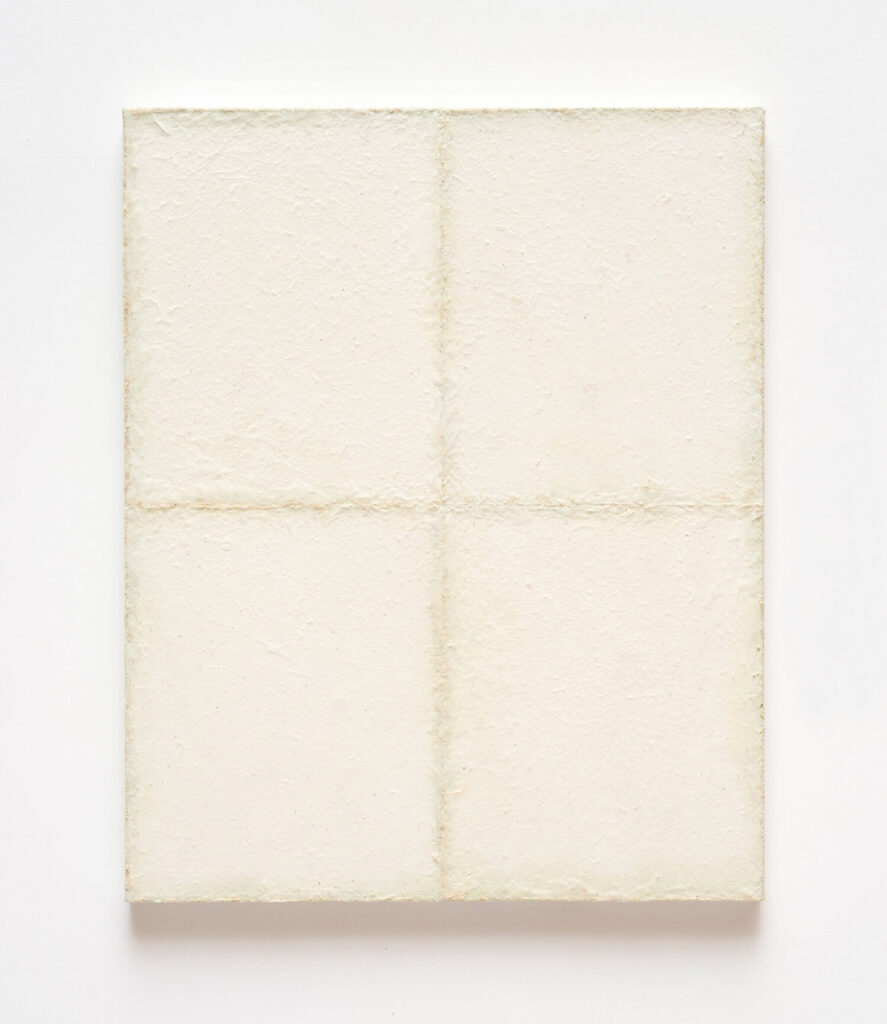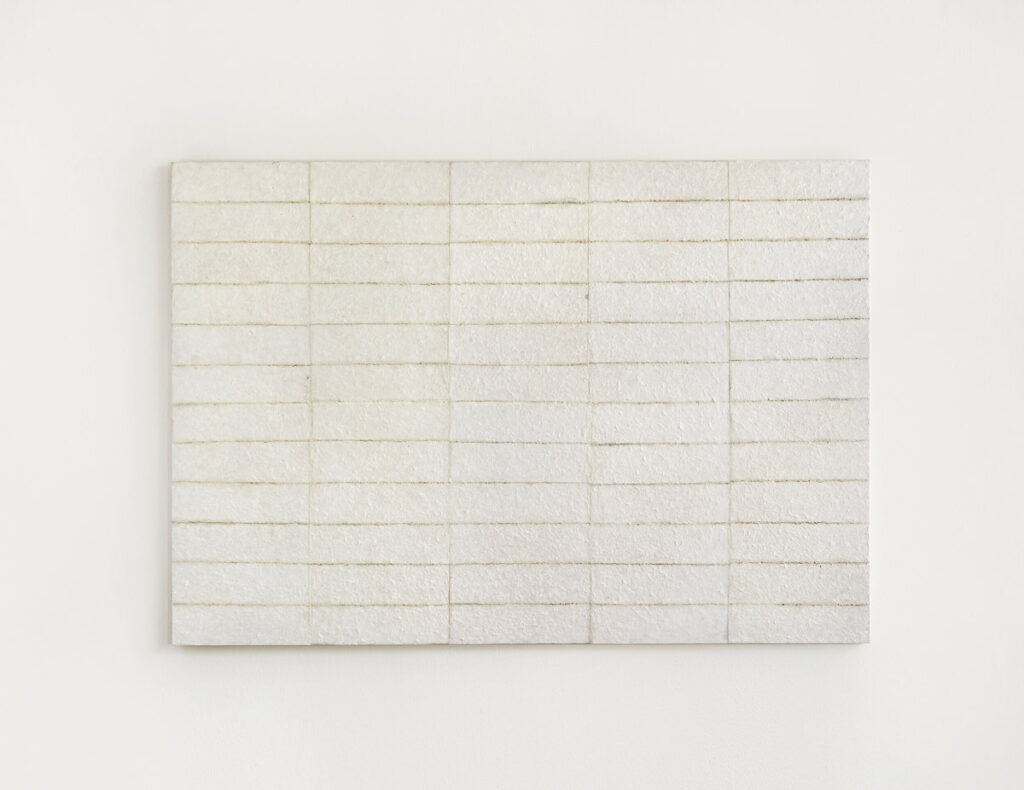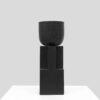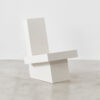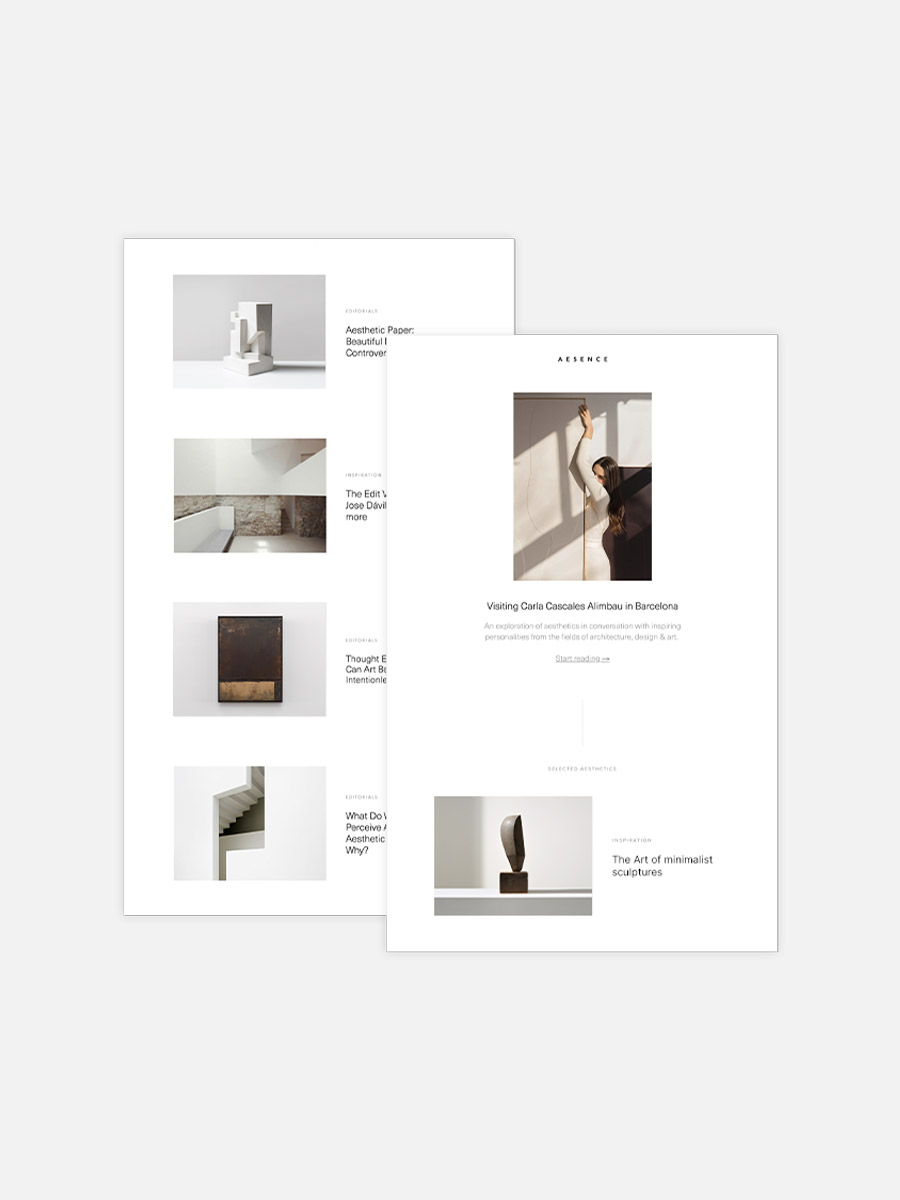Bo Kim (b.1994), a Seoul-based artist, is captivating with her meditative, minimalist art. Through her paintings, she explores the beauty of imperfection and the concept of impermanence — both of which are deeply rooted in Korean traditional culture and Buddhism. I’m particularly fond of two of her series, which I’d like to share in this article.
The core of the series ‘When Light is Put Away‘, lies in her meditative method of cutting out hanji – a traditional Korean paper made from the inner bark of the mulberry tree – and layering it with sand on the canvas. Her act of painting on the first layer of hanji represents her recording of vivid memories of the day, where color gradually softens and lightens as it seeps over time. The added layers of the thin and delicately textured hanji create a foggy and washed-away effect, reflecting the fading nature of memories and emotions.
In the works of the second series, which I want to share in this article, she celebrates the concept of imperfection. “The characteristics of incompleteness and decay which materialize in my paintings evoke the core Buddhist practice of accepting impermanence”, she says about the series.
Bo Kim seeks to produce a relaxing space for viewers to reflect on their emotions and find serenity and peace. Through her art, she encourages us to embrace impermanence and the beauty of imperfection and to take a moment to reflect on the fragility of life.
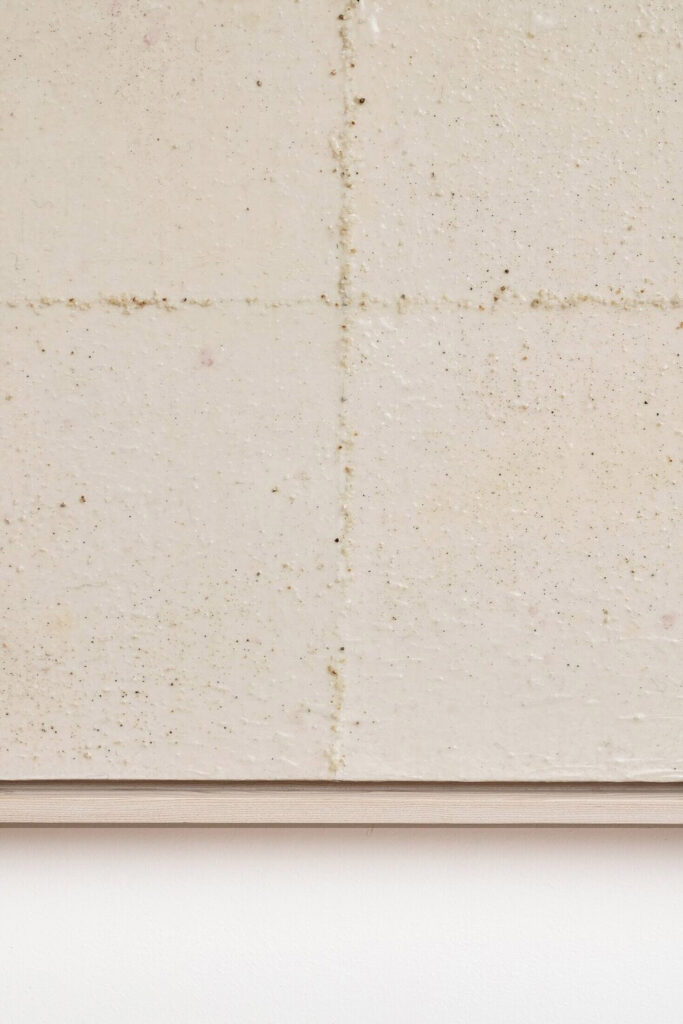
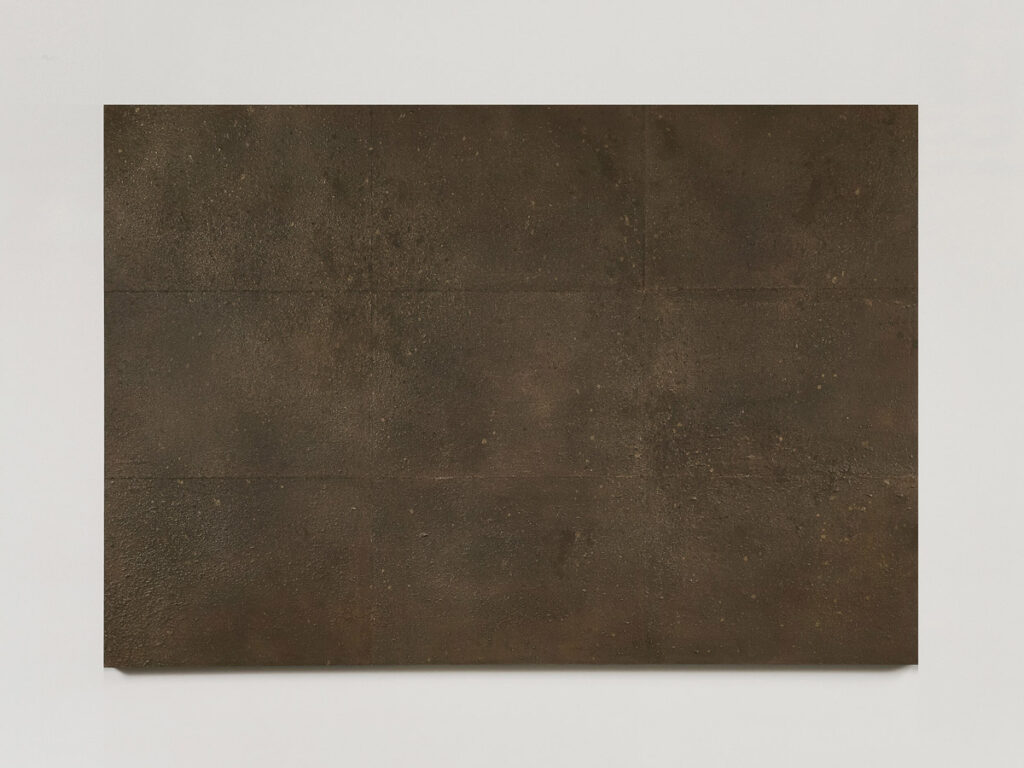
I have a daily routine of recording emotions and thoughts through writing and photographs, when I translate these into canvases, I think of it as engraving these thoughts and feelings upon my mind.
Bo Kim about her works (via Francis Gallery)
